COVID-19: TCTMD’s Dispatch for October Week 4
We’re curating a list of COVID-19 research and other useful content, and updating it regularly.

Since March 2020, TCTMD reporter Todd Neale has been writing up breaking news and peer-reviewed research related to COVID-19 every weekday. In July 2021, we transitioned to Mondays, Wednesdays, and Fridays. If you have something to share, tell us. All of our COVID-19 coverage can be found on our COVID-19 Hub.
October 29, 2021
Fluvoxamine, a medication commonly used to treat depression and obsessive compulsive disorder, improves outcomes in high-risk, symptomatic outpatients with early diagnosed COVID-19, according to results of the TOGETHER trial published in the Lancet Global Health. Compared with placebo, the selective serotonin reuptake inhibitor (SSRI) reduced the need for hospitalization, with a hint of a survival benefit. “Given fluvoxamine’s safety, tolerability, ease of use, low cost, and widespread availability, these findings may have an important influence on national and international guidelines on clinical management of COVID-19,” one of the trial leaders said in a press release.
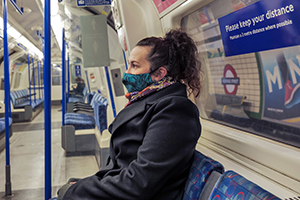 The prevalence of COVID-19 in England—one out of every 50 people—is at its highest point since the beginning of the year, Britain's Office for National Statistics said Friday (Reuters). That figure rose for the fifth straight week. The last time prevalence was this high was during the week ending January 2. “Since then, a vaccination program has largely broken the link between cases and deaths from COVID-19. Prime Minister Boris Johnson has said he plans to tolerate rising infections without resorting to a new lockdown,” the article notes.
The prevalence of COVID-19 in England—one out of every 50 people—is at its highest point since the beginning of the year, Britain's Office for National Statistics said Friday (Reuters). That figure rose for the fifth straight week. The last time prevalence was this high was during the week ending January 2. “Since then, a vaccination program has largely broken the link between cases and deaths from COVID-19. Prime Minister Boris Johnson has said he plans to tolerate rising infections without resorting to a new lockdown,” the article notes.
Late Friday, the US Food and Drug Administration (FDA) authorized use of the COVID-19 vaccine from Pfizer/BioNTech in children ages 5 to 11, following a positive recommendation from an advisory committee earlier this week; the US Centers for Disease Control and Prevention (CDC) will weigh in next before shots start going into arms. The decision comes as recent data show that infections among children continue to fall. As CIDRAP News reports, the latest update from the American Academy of Pediatrics (AAP) indicates that 118,000 pediatric cases were reported last week, representing the seventh consecutive week of declines. That figure is well below the pandemic peak of nearly 252,000 cases in the first week of September.
Sotrovimab, an investigational monoclonal antibody developed by Vir Biotechnology and GlaxoSmithKline, reduces the risk of disease progression leading to hospitalization or death among nonhospitalized patients with symptomatic COVID-19, an interim analysis of the phase III COMET-ICE trial, published in the New England Journal of Medicine, shows. The treatment received an emergency use authorization from the FDA back in May.
Vaccination lowers the risk of transmitting the Delta variant of SARS-CoV-2, but the virus can still be spread to others within a household, a study in the Lancet Infectious Diseases shows. Among household contacts, 25% of those who were vaccinated and 38% of those who had not received the shots tested positive. Fully vaccinated people cleared their infections more quickly than their unvaccinated counterparts. The findings don’t lessen the importance of vaccination, the authors say. “The ongoing transmission we are seeing between vaccinated people makes it essential for unvaccinated people to get vaccinated to protect themselves from acquiring infection and severe COVID-19, especially as more people will be spending time inside in close proximity during the winter months,” one of the leaders of the study said in a press release, noting that people eligible for booster shots “should get them promptly.” 
There is not enough evidence to establish a link between COVID-19 vaccines and very rare cases of multisystem inflammatory syndrome, according to the safety committee of the European Medicines Agency (EMA), which will continue to monitor the issue. The committee also is evaluating additional data related to risks of myocarditis and pericarditis after receipt of an mRNA vaccine and has started a review of a signal of capillary leak syndrome associated with Moderna’s shot.
A paper published this week in the Journal of Thrombosis and Haemostasis provides an update on the diagnosis and management of vaccine-induced immune thrombotic thrombocytopenia (VITT) associated with COVID-19 vaccination. “We provide new available evidence on VITT to empower clinicians to recognize VITT early, then effectively diagnose and treat the disorder to reduce morbidity and mortality,” the authors write. “We strongly encourage production of clear management pathways for primary care settings and hospital settings.”
The risk of adverse outcomes related to COVID-19 among patients with cancer depends on whether they’ve recently received treatment for the malignancy, researchers report in JAMA Oncology. Those with cancer but no recent treatment did as well as or better than those without cancer when it came to risks of mortality and mechanical ventilation, whereas patients with recent cancer treatment had greater risks of death, need for an ICU stay, and hospitalization.
Patients on dialysis have a dampened immune response to COVID-19 vaccination, and diabetes may be a risk factor for a lack of response to the shots, according to systematic review and meta-analysis in JAMA Network Open. “Further investigations of immune response and side effects of SARS-CoV-2 vaccines in patients receiving dialysis, as well as the benefits and real-world clinical efficacy of different vaccine protocols, different types of vaccine, are warranted,” the authors say.
 Merck will allow molnupiravir, its investigational oral antiviral for the treatment of COVID-19 jointly developed with Ridgeback Biotherapeutics, to be made by pharmaceutical companies in other countries after signing a licensing agreement with the United Nations-backed Medicines Patent Pool, CIDRAP News reports. “This agreement will help create broad access for molnupiravir use in 105 low- and middle-income countries following appropriate regulatory approvals,” Merck said.
Merck will allow molnupiravir, its investigational oral antiviral for the treatment of COVID-19 jointly developed with Ridgeback Biotherapeutics, to be made by pharmaceutical companies in other countries after signing a licensing agreement with the United Nations-backed Medicines Patent Pool, CIDRAP News reports. “This agreement will help create broad access for molnupiravir use in 105 low- and middle-income countries following appropriate regulatory approvals,” Merck said.
October 27, 2021
After “sometimes tense deliberations that weighed the benefits of vaccination against potential risks” on Tuesday, a US Food and Drug Administration (FDA) advisory committee recommended emergency authorization of the Pfizer/BioNTech COVID-19 vaccine for children ages 5 to 11, STAT reports. “Panelists were nearly unanimous in believing the vaccine should be made available, but also in having reservations about how widely it should be used.”
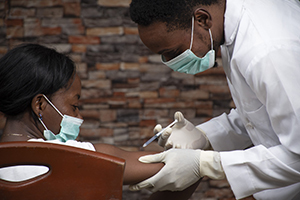 The COVID-19 vaccine situation in Africa seems to be improving, with Moderna saying Tuesday that it will provide the continent with up to 110 million doses of its shot at the “lowest-tiered price,” the Associated Press reports. “The announcement said Moderna is prepared to deliver the first 15 million doses by the end of this year, with 35 million in the first quarter of 2022 and up to 60 million in the second quarter.” Moreover, BioNTech has signed an agreement with Senegal and Rwanda “for the construction of its first start-to-finish factories to make messenger RNA vaccines in Africa,” with the projects set to begin in the middle of next year.
The COVID-19 vaccine situation in Africa seems to be improving, with Moderna saying Tuesday that it will provide the continent with up to 110 million doses of its shot at the “lowest-tiered price,” the Associated Press reports. “The announcement said Moderna is prepared to deliver the first 15 million doses by the end of this year, with 35 million in the first quarter of 2022 and up to 60 million in the second quarter.” Moreover, BioNTech has signed an agreement with Senegal and Rwanda “for the construction of its first start-to-finish factories to make messenger RNA vaccines in Africa,” with the projects set to begin in the middle of next year.
The United States has seen a nearly 60% drop in new COVID-19 cases since a Delta-driven spike in September, according to the Washington Post; the 7-day average was about 69,000 per day this week, down from about 164,000 per day in the middle of September. The decline in cases is not consistent around the world, however. In the Czech Republic, for instance, the daily case number exceeded 6,000 for the first time since April (6,274 on Wednesday), according to Reuters. And a World Health Organization (WHO) committee recently underscored that “while progress has been made through increased uptake of COVID-19 vaccines and therapeutics, analysis of the present situation and forecasting models indicate that the pandemic is far from finished.”
STAT’s Andrew Joseph gives us three takeaways from the emergence of the Delta-plus variant of SARS-CoV-2, which has been cropping up in various parts of the world and now makes up about 10% of sequenced samples in the United Kingdom. He notes that “scientists are still trying to determine what, if any, competitive advantage the newer form of the virus has over Delta.”
 The postacute sequelae of severe SARS-CoV-2 infection are the subject of a state-of-the-art review in JACC: Basic to Translational Science. The authors note that long-term problems are reported by 33% to 98% of patients who recover from the initial infection and that “evidence points to disproportionate impact on racial/ethnic minorities, older patients, patients with preexisting conditions, and rural residents.”
The postacute sequelae of severe SARS-CoV-2 infection are the subject of a state-of-the-art review in JACC: Basic to Translational Science. The authors note that long-term problems are reported by 33% to 98% of patients who recover from the initial infection and that “evidence points to disproportionate impact on racial/ethnic minorities, older patients, patients with preexisting conditions, and rural residents.”
Risks of certain neurological complications are higher after receipt of COVID-19 vaccines from Oxford/AstraZeneca and Pfizer/BioNTech, but not higher than after a positive SARS-CoV-2 test, according to a study in Nature. Guillain-Barré syndrome (GBS) and Bell’s palsy were more frequent after the Oxford/AstraZeneca shot and hemorrhagic stroke was higher after the Pfizer/BioNTech vaccine. For GBS in particular, there were an estimated 38 excess cases per 10 million people who received the Oxford/AstraZeneca shot versus 145 excess cases per 10 million people with a positive SARS-CoV-2 test.
CIDRAP News details new research into the financial impact of the pandemic on US hospitals: “Three new studies describe how the COVID-19 pandemic cratered the finances of many US hospitals, one finding that most federal relief funds went to the already best-resourced facilities and the other two showing the devastating monetary effects of delaying or canceling surgeries.
The start of the COVID-19 pandemic was associated with increases in prescriptions of Z-hypnotic and serotonergic drugs in men and women and of benzodiazepines in women, researchers report in JAMA Network Open. The medications are commonly used to treat anxiety, depression, and insomnia. “These findings suggest a substantial association of COVID-19-associated social isolation, stay-at-home orders, and other COVID-related mitigation measures with mental health issues, especially among women,” the authors say.
 In general, people have not let down their guard after getting vaccinated against COVID-19, according to a study of 12 countries published in JAMA Network Open. “Despite occasional significant results, all of small magnitude, overall, this cross-sectional study found no substantial reduction in physical distancing or mask use associated with receipt of COVID-19 vaccine doses,” the researchers report. “This suggests that until early June, people generally did not engage in concerning levels of risk compensation as they acquired immunity.”
In general, people have not let down their guard after getting vaccinated against COVID-19, according to a study of 12 countries published in JAMA Network Open. “Despite occasional significant results, all of small magnitude, overall, this cross-sectional study found no substantial reduction in physical distancing or mask use associated with receipt of COVID-19 vaccine doses,” the researchers report. “This suggests that until early June, people generally did not engage in concerning levels of risk compensation as they acquired immunity.”
October 25, 2021
Moderna has announced top-line data from its pivotal study in children 6 to 11 years old. “This interim analysis showed a robust neutralizing antibody response after two doses of mRNA-1273 at the 50 µg dose level with a favorable safety profile,” the company said in a press release. Moderna plans to submit the Spikevax data to the US Food and Drug Administration (FDA), European Medicines Agency (EMA), and other global regulators.
Ahead of the scheduled meeting this week of the FDA’s Vaccines and Related Biological Products advisory committee, the agency posted a briefing document on myocarditis concerns with Pfizer's vaccine in children ages 5 to 11. The report states that “the overall analysis predicted that the numbers of clinically significant COVID-19-related outcomes prevented would clearly outweigh the numbers of vaccine-associated excess myocarditis cases over a range of assumptions for COVID-19 incidence.”
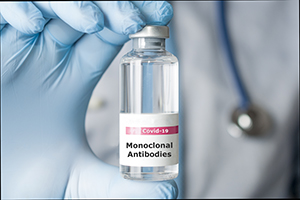 Many high-risk patients with mild to moderate COVID-19 symptoms who are eligible for monoclonal antibodies don’t get them for a multitude of reasons. Among them are demand outweighing supply, staff shortages, support equipment shortages, and lack of physician knowledge about when they should be used and in whom, according to an investigation by CNN.
Many high-risk patients with mild to moderate COVID-19 symptoms who are eligible for monoclonal antibodies don’t get them for a multitude of reasons. Among them are demand outweighing supply, staff shortages, support equipment shortages, and lack of physician knowledge about when they should be used and in whom, according to an investigation by CNN.
While the proportion of hospitalized COVID-19 patients with severe outcomes did not change significantly after Delta became the predominant variant of SARS-CoV-2, the average monthly proportion of patients aged 18 to 49 increased from 26.9% before its arrival to 43.6% in the Delta period (P < 0.01). The data, reported in Morbidity and Mortality Weekly Report, come from the Centers for Disease Control and Prevention (CDC)’s COVID-19-Associated Hospitalization Surveillance Network (COVID-NET), a population-based surveillance system.
The EMA says a booster with the Moderna vaccine (Spikevax) may be considered in people aged 18 years and over who originally received two doses, based on a study showing that waning antibody levels rose following a third dose at 6-8 months after the second dose. “The current data indicate that the pattern of side effects after the booster is similar to what occurs after the second dose,” the agency said in a posting to their website. The decision follows a similar announcement earlier this month regarding boosters with the BioNTech/Pfizer vaccine.
 The virus is surging in Russia, prompting a variety of new restrictions, including lockdowns and school closures in some larger cities, Reuters reports. Russia reported its highest single-day COVID-19 infection rate since the start of the pandemic, with 37,930 new infections reported from Sunday to Monday. Meanwhile, China is continuing its zero tolerance policy by announcing that it will begin to vaccinate children as young as age 3.
The virus is surging in Russia, prompting a variety of new restrictions, including lockdowns and school closures in some larger cities, Reuters reports. Russia reported its highest single-day COVID-19 infection rate since the start of the pandemic, with 37,930 new infections reported from Sunday to Monday. Meanwhile, China is continuing its zero tolerance policy by announcing that it will begin to vaccinate children as young as age 3.
Scientists and policymakers should focus on creating international surveillance networks for detecting and containing the spread of substandard and counterfeit COVID-19 vaccines and medicines, according to an opinion published by STAT. Unless targeted action is taken to stem the increasingly pervasive number of these products worldwide, the virus could become endemic.
The Associated Press reports that Florida’s newly appointed surgeon general, Joseph Ladopo, MD, PhD, was asked to leave a meeting over the weekend—after refusing to wear a mask when asked to do so by a state senator who’d not yet made her breast cancer diagnosis public. Last week, Ladopo questioned the efficacy of COVID-19 vaccines and denounced vaccine mandates.
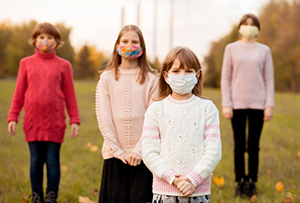 A study of long COVID in 157,134 people, including nearly 12,000 children and adolescents, suggests that the syndrome’s impact is similar across age groups, although there was a lower absolute incidence of it in younger people compared with adults. The study was posted as a preprint on the medRxiv server.
A study of long COVID in 157,134 people, including nearly 12,000 children and adolescents, suggests that the syndrome’s impact is similar across age groups, although there was a lower absolute incidence of it in younger people compared with adults. The study was posted as a preprint on the medRxiv server.
Today’s Dispatch was contributed by L.A. McKeown.
Todd Neale is the Associate News Editor for TCTMD and a Senior Medical Journalist. He got his start in journalism at …
Read Full Bio


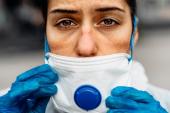

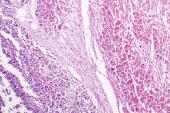
Comments